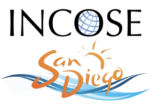| Sunday | Monday | Tuesday | Wednesday | Thursday | Friday | Saturday |
|---|---|---|---|---|---|---|
1
| 2
| 3
| ||||
4
| 5
| 6
| 7 | 8
| 9
| 10
|
11
| 12
| 13
| 14
| 15
| 16
| 17
|
18
| 19
| 20
| 21
| 22
| 23
| 24
|
25
| 26
| 27
| 28
| 29 | 30 |
Leveraging the Cloud and AI to Enable Agile and Accelerated Systems Engineering
(This event is free and open to all, including non-members)
Leveraging the Cloud and AI to Enable Agile and Accelerated Systems Engineering
Location: Filippi’s Restaurant in Kearny Mesa at 5353 Kearny Villa Rd, San Diego, CA 92123 (Google Maps)
Presentation and Dinner: The first 1/2 hour is for dinner and networking. The optional buffet dinner starts at 5:30., and the presentation begins at approximately 6 pm. The cost of the buffet is $10 for members, $15 for non-members, and includes pizza, salad, pasta, and soft drinks.
Webcasting: This presentation will be webcast starting at approximately 5:50 pm. You will be able to view the presentation slide show and hear audio from the speaker. Please note that during our phase-in period, we will not be take questions from our webcast audience; we hope to do so in the future. Finally, please note that the webcast quality depends on our venue’s Internet connection (i has been dependable in the past but is sometimes inconsistent at the beginning).
Note – Webcasting requires you to install the WebEx browser plugin. You will also need to install the GlobalMeet audio app to call in via the Internet. If you experience problems with the audio app or choose not to install it, you can also call in using the toll-free telephone number below.
To join the video webcast:
From a web browser, go to https://incose.webex.com/join/webex18
From a mobile app, open the app and enter meeting number: 252 846 155
To join by phone (for audio):
Toll-free number 1-866-398-2885
Audio Passcode: 412 867 1535
Synopsis:
As systems become more complex with deep integration of multiple disciplines (software, electrical, and mechanical), information relating to designs, analysis and decision making become more difficult to manage and update which can lead to significantly extended project timelines and increased costs. This coupled with increasingly ambitious projects require us to build systems that enable the management of complexity and reduction of project timelines, and therefore cost.
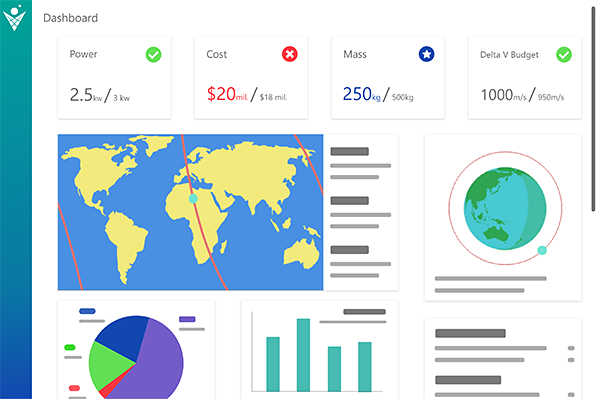
Voyager Space Technologies is developing a cloud-based engineering platform that allows engineers to directly integrate their analysis (MATLAB, python, FEA) into a modeling environment along with system block diagrams, bills of materials (BOM) and CAD files. This Integrated modeling and development environment allows teams to reuse analyses and models across projects, as well as utilize those models concurrently and collaboratively. Beyond facilitating collaboration and reuse, the integration of all these data points allows for systems optimization and insight generation that relates to design decisions and component selection on a much larger scale. Voyager utilizes cloud servers and computation clusters to run hundreds of analyses, thousands of times to generate those insights. My talk will include details on our current approach, user research and current development status.
Presenter: Faris Hamdi
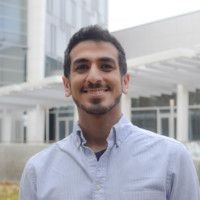
Faris Hamdi is the CTO of Voyager Technologies, a startup focused on accelerating the engineering process by providing a collaborative concurrent engineering platform for teams. Previously, Faris lead the Triteia CubeSat Team at UC San Diego in the NASA CubeQuest Competition and placed fourth nationally for the development of a lunar small satellite. Faris is an Aerospace Engineering undergraduate at the UC San Diego with experience in robotics and systems engineering at the Contextual Robotics Institute and the Scripps Institute of Oceanography.
15 signed up so far.
Event date is past
Special Tutorial – Agile Systems Engineering
(This event is open to all, including non-INCOSE members)
Special Tutorial: Agile Systems Engineering – Problem Space Analysis & Solution Space Synthesis
2-Day INCOSE San Diego Tutorial
Presented by Mr. Rick Dove, CEO/CTO Paradigm Shift International and Chair of INCOSE Agile Systems and Systems Engineering Working Group.
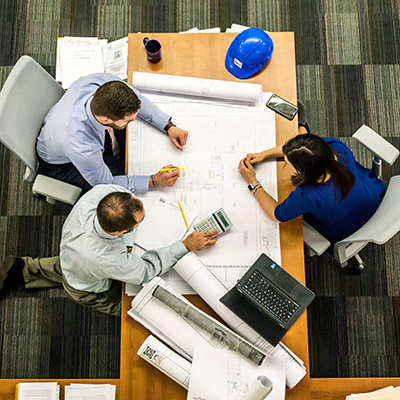

Dates: Thurs-Fri, Nov 29-30, 2018, 8:00 AM to 4:30 PM
Location: California Miramar University, 3550 Camino Del Rio N #208, San Diego, CA 92108 (Google Maps)
Cost: $250 INCOSE members. $280 Non-INCOSE members. $200 Students. (* Registrants who are attending the 2018 INCOSE San Diego Mini-Conference also receive a $20 discount).
Lunch provided on both days.
*** NOTE – People attending the Mini-Conference on Saturday, Dec 1st, 2018, also receive a $20 discount on the cost of this tutorial. Please sign up for both!
Almost every software development organization today (and a few hardware companies to boot) practice some form of Agile software development. This highly-iterative approach requires a special type of systems engineering, one that differs significantly from the traditional V-model.
Knowledge and training in Agile is therefore a must-have for today’s systems engineering professionals! Please join us for this special two-day systems engineering tutorial by Rick Dove, chair of the INCOSE Agile Systems and Systems Engineering working group. This tutorial is centrally located at the California Miramar University in Mission Valley, is very affordable, and includes lunch on both days.
Questions? Please contact us at info@sdincose.org, or contact the instructor Rick Dove directly at dove@parshift.com / 575-586-1536
About the Course:
This 2-day Agile Systems Engineering course is designed for
- Beginners to experienced SE practitioners
- Engineers of all disciplines
- Project managers
- System requirements developers
Participants will receive:
- Instruction, plus introduction to analysis and design tools.
- Examples/tool applications to real life case studies.
- Engagement in application exercises.
- Reference material / soft-copy course notes and case studies for the course examples.
Features to be Learned:
- Goal development framework
- Environment characterization framework
- Reality factors framework
- Response-requirements framework
- Agile architecture pattern
- Design principles
- Operational models
- Operational behavior principles
- Strategy web
- Design closure
Benefits to be Realized:
- System environment compatibility
- Projects that mitigate evolving risk
- Processes that deliver on purpose
- Products that are sustainable
Advantages to be Obtained:
- Context-driven top-level goals
- Problem space illumination
- Risk-response needs established
- Traceable solution design decisions
- Enabled agility
- Reusable/Reconfigurable/Scalable
- Incremental/Wave/PLE knowledge
- Facilitated agility
- Coherent solutions
- Solutions fit for purpose
Course Content:
Day 1 – Problem Space Analysis
To be effective, projects/processes/products (all viewed as systems) have to mate well with their operational environments. Operational environments are not static, they react to disturbances and evolve with opportunity and whimsy. Inserting a system into an environment is a disturbance. Sustaining a system in an environment entails compatible evolution.
The environment is the problem space the system will occupy. Understanding the requirements for a compatible-to-the-space solution is best done before system functional requirements get too far ahead and shape an incompatible path.
But how do we characterize the environment as a dynamic problem space and develop solution-response requirements, sufficient to guide the design of risk-mitigating agility? Characterizing the problem space is an ill-structured problem. It cannot be expressed in numbers and equations, nor solved with algorithms. This tutorial provides heuristic frameworks for developing useful characterizations of the problem space, and for developing risk-mitigating requirements for the solution space; grounded with real examples and in-class application practice.
Given enough understanding about the problem, effective solution requirements and features becomes (almost) obvious. The problem shapes and constrains effective solution, but only to the extent that we understand it.
Day 2 – Solution Synthesis
Mixed-discipline agile systems engineering is practiced in many operational forms: Scrum-like, Safe-like, asynchronously aligned incremental, product line engineering (PLE), and Wave in various forms. All are enabled by a fundamentally common generic architecture characterized as loosely coupled and modular, with five important operational responsibilities not generally recognized explicitly in common practice. The architecture is fleshed out with a set of common design principles observed consistently in analyzing what makes agile systems responsively effective. More recent work has discovered fundamental operational behavior principles that facilitate effective agile SE practice.
Case studies will show, and exercises will synthesize, the agile architecture pattern, the ten design principles, the nine operational principles, a strategic activity web depicting the Concept of Operations, and a methodology for closing agile design with agile requirements while employing the principles.
The agile life cycle framework that has emerged from recent studies will also be covered. This framework modifies the 15288 standard 6-stage framework and provides an added life cycle stage ignored to date and core-critical for agile systems engineering.
About the Presenter: Rick Dove
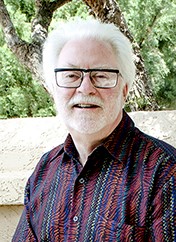
Rick Dove is a leading researcher, practitioner, and educator of fundamental principles for agile enterprise, agile systems, and agile development processes. In 1991 he initiated the global interest in agility as co-PI on the seminal 21st Century Manufacturing Enterprise Strategy project at Lehigh University. Subsequently he organized and led collaborative research at the DARPA-funded Agility Forum, involving 250 organizations and 1000 participants in workshop discovery of fundamental enabling principles for agile systems and processes. He is CEO of Paradigm Shift International, specializing in agile systems research, engineering, and education; and is an adjunct professor at Stevens Institute of Technology teaching graduate courses in agile and self-organizing systems. He chairs the INCOSE working groups for Agile Systems and Systems Engineering, and for Systems Security Engineering, and is the leader of the current INCOSE Agile Systems Engineering Life Cycle Model Discovery Project. He is an INCOSE Fellow, and the author of Response Ability – the Language, Structure, and Culture of the Agile Enterprise.
*** NOTE *** – People attending the Mini-Conference on Saturday, Dec 1st, 2018, also receive a $20 discount on the cost of this tutorial. Please sign up for both!
19 signed up so far.
Event date is past
Events Archive
